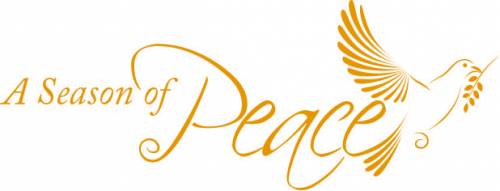
Whoever welcomes you welcomes me, and whoever welcomes me welcomes the one who sent me.
Matthew 10:40 (NRSV)
This past January I participated in a Contextual Immersions J-Term course on Immigration at the U.S.-Mexico Border, sponsored by Columbia Theological Seminary. During the 2½-week course my classmates, professors and I gathered often on Zoom to connect with new colleagues working and living at the border. We were able to hear firsthand stories of hope and joy, loss and longing, leaving home and arriving new places, endings and beginnings, and over and over, themes of being welcomed and welcoming others.
As we heard these stories of our neighbors brought closer by technology, we began to share relational moments and orient ourselves as new characters in the lives of one another. No longer were we strangers or “others” but rather a new grouping of activists, students, leaders and children of God. We were called to action to invest ourselves in our local refugee and migrant communities and to work to dispel the often-taught narrative that we should keep our distance. Reminded that just as Jesus was once a refugee, we were called into fully welcoming immigrants in whatever way we can.
As people of faith, we have a calling to examine how we are currently practicing radical welcome and acceptance to migrants and displaced people. The laws and practices of the United States have not historically been welcoming to all who want to come here, and we have tended to “other” those who are leaving the places they have always called home. Perhaps it is time we begin to open our doors wider and extend invitations of welcome to all.
Action: Research local businesses run by refugees and immigrants. Grab a friend, plan a visit, and support their work and trade.
Prayer: Holy One, Holy Three, just as you have moved and danced throughout history, we ask that you continue to journey alongside all who travel across land and sea. May we ever be reminded of your liberating hope and radical welcome as borders are crossed and new homes are cultivated. Amen.

Courtney Anne Henry is a current seminarian at Columbia Theological Seminary in the Dual Degree Program (M.Div. and MAPT ’24). She is an inquirer in the Presbytery of Greater Atlanta where she is currently discerning a creative and artistic calling to ministry.
This year’s Path of Peace reflections are designed to help participants explore peacemaking efforts addressing some of the major issues of our time. The theme for the 29 days of the 2022 A Season of Peace is Led Forth in Peace: Critical Areas of Engagement for Peacemakers. With these daily reflections, we are invited to reflect upon ways to practice peace by engaging the following critical areas:
- Climate change
- Nonviolence

- The intersection of poverty and racism
- Immigration/migration


No comments:
Post a Comment